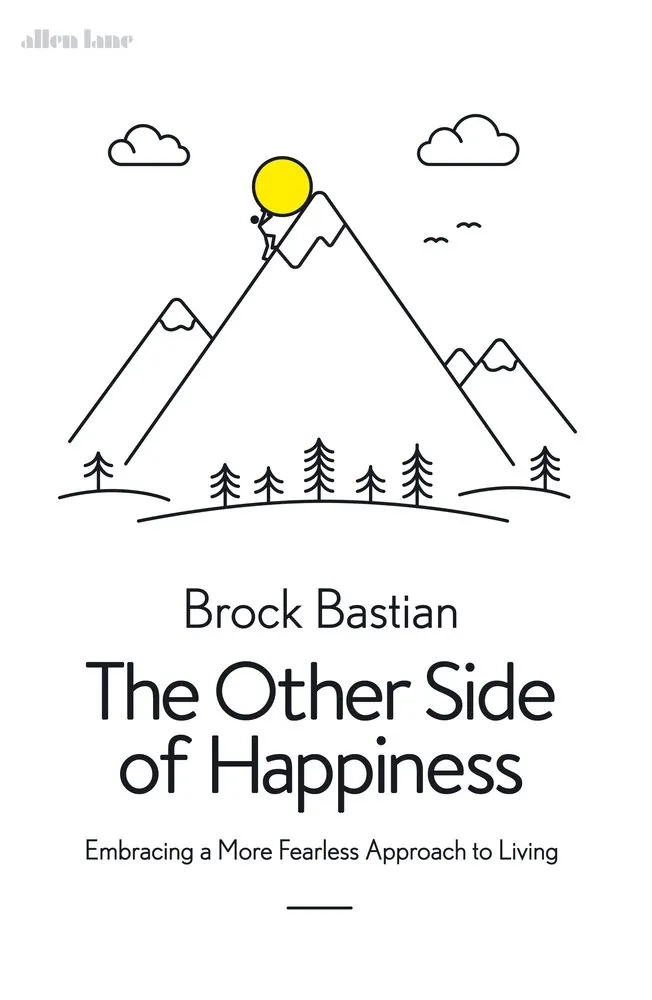Generally, pain is something to be avoided: we tend to equate happiness with feeling comfortable. But, in his new book,The Other Side Of Happiness, psychologist Brock Bastian argues that pain might just be the hidden ingredient to a fulfilled life.
The main idea in your book is that we need some pain in our lives…
Happiness has become a focus of Western culture, and for many of us seeking happiness is an important goal in life. But we can’t have endless happiness. If you think about it, that’s actually quite a banal and horrible idea. We need the painful, negative experiences to know what happiness is – they give definition and meaning to our lives. We need to accept the negatives rather than try to medicate or eradicate them all.
We usually want to get rid of pain. What’s the downside of eliminating it?
We’re getting good at designing painkillers to take control of ourpain, and in the developed world, we’re more comfortable than ever, at least in the physical sense. But I think we’re becoming too comfortable. Our ability to cope with discomfort is decreasing, and we sometimes feel like we shouldn’t have to deal with pain at all. I’m talking about physical pain here, but you can draw parallels with other types of pain, such as social pain. Incidentally, a study has shown that taking painkillers not only reduces our negative experiences, but also our positive experiences. It seems that numbing our access to pain also numbs our access to pleasure. I’m not saying we should stop taking painkillers, of course, but I think there’s a tendency to reach for them a little too readily.
We need contrast in life. A holiday is particularly enjoyable if we’ve had to work hard for it. Food tastes especially good after a long hike. By engaging with adverse or difficult experiences we increase our capacity to access pleasure in life. Yet, our societies tend to devalue these types of experiences. Our research at the University of Melbourne has shown that living in a society which expects us to be happy all the time actually seems to be drivingdepression. One of our studies involved tracking participants over a month as they kept daily diaries, and we found that social expectations were a central feature in people’s depressive symptoms.
What are the benefits of pain?
Obviously it serves a physical function, telling us to take our hand away from a hot stove, but it also has more psychological benefits. For example, it helps with social connections. We’re automatically attuned to other people’s suffering, and it prompts us to reach out to others. In 2011, while I was researching this topic, there were huge floods in Brisbane, and 55,000 people came out to help with the clean-up.
So pain also makes us more generous?
About 12 months before the ALS Ice Bucket Challenge went viral in 2014, a study showed that people were prepared to donate more to charity if they’d just dunked their hand into ice-cold water. It was as if the pain gave more meaning to the act of giving. I doubt the Ice Bucket Challenge would have been so effective if people had been throwing confetti over themselves.
And pain also makes us more resilient. Research shows that the more we have to endure in life, the better we get at coping with it. Of course, too much trauma is damaging, but we need some exposure to challenging experiences in order to build resilience for the future.

How about chronic pain – surely that can never be a good thing?
No, I’d never want to pretend that anyone who’s in chronic pain should be grateful for their experiences. I was invited to talk at the British Pain Society in front of anaesthetists who treat chronic pain, and I was a bit concerned at how my message would come across. But people were really interested in how this broader perspective can give people tools to respond to their pain. Even in chronic cases, some of the positive effects of pain can sometimes still be present. I’m not saying they outweigh the cost of chronic pain, but it can help give a more nuanced view of things – that pain is not simply ‘bad’.
How can we put your ideas into practice in our lives?
First, we need to be authentic with our negative experiences, not pretend that they’re not there. Sometimes life sucks – failure happens, and it is what it is. But the next step is to understand what these difficult experiences can offer us, and to see that we’re often seeking out these negative experiences in the first place, even if it might not seem like it. We don’t run marathons for the pleasure; we run them for the pain. The joy of passing an exam is meaningless without the possibility of failure. Finally, we need to embrace and engage with these experiences more. I’m not saying we need to cause ourselves harm – pain is not the same as harm. But a lot of pleasure in life comes from pushing ourselves and exposing ourselves to risks. I think that’s the key to a meaningful life.

This interview first appeared in issue 317 of BBC Focus Magazine –subscribe here.
Follow Science Focus onTwitter,Facebook, Instagramand Flipboard
